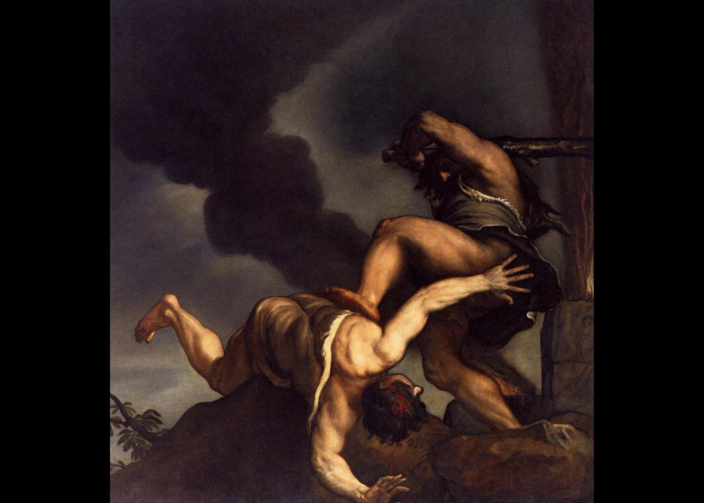A Reflection for Monday of the Sixth Week in Ordinary Time
Find today’s readings here.
“Cain said to his brother Abel, ‘Let us go out into the field.’
When they were in the field,
Cain attacked his brother Abel and killed him.” (Gen 4:8)
Scarcely do we marvel over the poetic creation story when the writer of Genesis plunges us into family drama, letting us know that there has never been a family without drama.
Including my own. A wall of misunderstanding has divided my siblings into opposing camps since my mother’s death. What floors me is that, whenever I unburden myself of this sorrow to a friend, they too have a story of some fracture in their family, some member falling out with another over politics, money, duplicity, you name it. The happy tableaux we present of our families are not always honest.
It seems the legacy of the serpent in the garden persists through the generations. There have been no murders in my extended family like the one in today’s reading, but we have injured each other. “You sit speaking against your brother / against your mother’s son you spread rumors.” The Psalmist has met us.
I don’t know the secret to happy families, any more than Adam and Eve do.
God’s rejection of Cain’s offering plants the seed of resentment in Cain’s heart. Cain’s response is to kill his brother. We may know the impulse, that “demon lurking at the door.” Our all-too-human emotions, left unchecked, can prompt us to lash out and hurt the ones we are supposed to love. “Am I my brother’s keeper?” Cain asks God, unable to conceal the blood on his hands and the bitterness in his soul. We know the answer is yes.
And we know God’s definition of our brothers and sisters encompasses more than our relatives. We may wonder how we are ever going to be able to care for strangers, our spiritual siblings, when we cannot even get along within our genetic families. Peace begins at home, but so does war.
The tragedy of the first siblings tells us we have been a hapless, hopeless bunch from the beginning of humanity. Our shared DNA or family history is not enough to mend our brokenness, our rigidity, our lack of forgiveness. The Gospel notes that our bickering and backstabbing make our brother Jesus sigh “from the depth of his spirit.” We humans are in need of God’s grace.
I don’t know the secret to happy families, any more than Adam and Eve do. After their family heartbreak, they move on, one son dead, one a restless wanderer, while another child is born. They keep going. They accept the good in the present tense. Maybe that’s today’s lesson, that, like Jesus with the arguing Pharisees, sometimes we have to sigh deeply and leave a situation where we can’t win. We’re best to get back in the boat and go off to another shore. Maybe that’s where we’re called. Maybe that’s where miracles happen. I do believe that God expects us to keep trying to do this thing called love.








